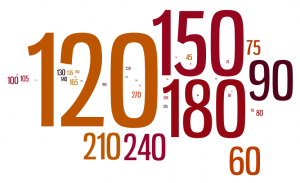Is there a dress code for the viva?
Whenever I deliver a workshop on viva preparation, I ask “What do you want to know about the viva?” 100% of the time I get asked about the lengths of vivas, but as I answered that question last week, I thought that I would ask the question I get asked at 99% of workshops: is there a dress code for the viva?
In a few institutions, there is a standard of academic attire that is required (I believe Oxford and Cambridge often asks for candidates to wear academic black dress robes); be sure to check if there are any requirements at your institution. Guidelines might be given, but more often it is the candidate’s choice to decide what they want to wear. I know people who have worn business casual to their viva, and I know people who have worn a t-shirt and ripped jeans. I also know people who have stressed over what is “the best” or “the right” thing to wear.


